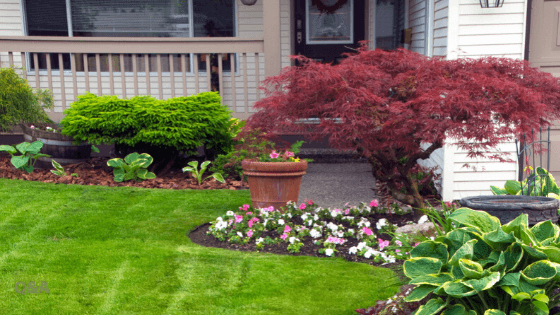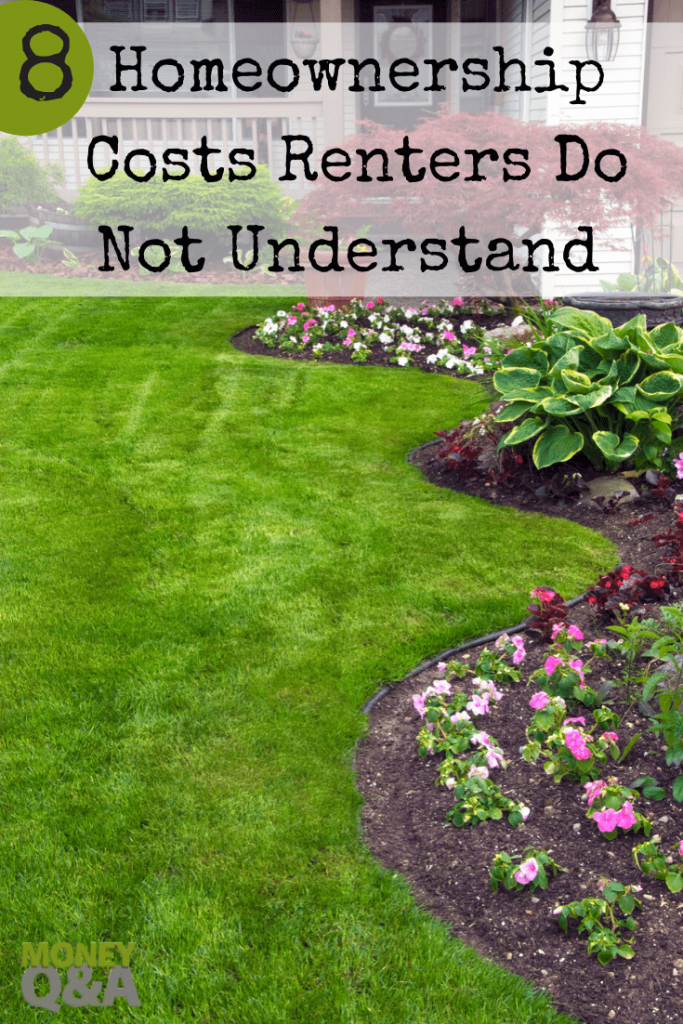
One of the most common parts of the American Dream that millions of people strive for is homeownership, but sometimes it’s not all it’s cracked up to be thanks to homeownership costs. When first-time homebuyers are saving up for a down payment on a home, the other costs related to home ownership that come after you buy the home are oftentimes overlooked because we get so wrapped up in the “saving for a home” part that we fail to adequately prepare for the expenses that come later.
The old proverb about the grass being greener on the other side is certainly true when it comes to renting versus homeownership. Rather than focusing almost exclusively on the benefits of homeownership (accumulating equity, no restrictive requirements imposed by a landlord, etc.), it’s critically important that you put in the extra effort to research, calculate and save for other homeownership costs before starting your home-buying journey.
Top 8 Homeownership Costs
If you’re currently a renter, here are some oft-overlooked homeownership costs you need to know about before deciding whether (or when) to buy a home.
Closing Costs
Some of the most important homeownership costs to factor into your home-buying budget are the closing costs, which come into the equation at the end of a real estate transaction. Closings costs include application fees, appraisals, attorney(s)’ fees, closing/escrow fees, credit report fees, home inspection costs, loan discount points (prepaid interest), origination fees, recording fees, and transfer taxes, to name a few.
Real estate experts estimate closing costs will be around 2-5% of a home’s purchase price, which means a $400,000 home may involve closing costs ranging from $8,000 to $20,000 – and no, this doesn’t include the down payment, insurance(s), and property taxes!
Property Taxes
Speaking of property taxes, renters aren’t directly responsible for paying property taxes (local, state) on an apartment or house – this is the actual homeowner’s responsibility (which may be passed along to the renter in the form of higher monthly rent).
According to the U.S. Census Bureau, the average American household pays about $2,250 in property taxes each year. Residents in Hawaii, Alabama and Louisiana have the lowest property tax rates, while residents in New Hampshire, Illinois and New Jersey have the highest property tax rates.
Homeowners’ Insurance
Landlords don’t always require tenants to have a renter’s insurance policy, but you’d be risking potentially hundreds of thousands of dollars if you didn’t get homeowner’s insurance for your own property (and most homeowners are required to maintain insurance on the property if it’s financed by an outside lender).
The average cost of homeowner’s insurance in the U.S. is around $1,080 per year, but this number may vary widely based on your location, potential for natural disasters in your area, neighborhood crime rates, home age/size, annual deductible amount, types of appliances, breed(s) of dog(s) you own, and your credit score. Meanwhile, renter’s insurance can cost as little as $9-15 per month ($96-180 annually).
Get Renters Insurance for Pennies a Day. Quote with Liberty Mutual Today
Home Repairs & Renovations
When you’re a renter and something breaks, usually the landlord or your property management company’s maintenance team is responsible for fixing maintenance issues. This can be anything from plumbing issues, electrical problems, non-functioning appliances, flooring/carpeting, and other fixtures in an apartment or home that naturally break or fall into disrepair over time.
When you’re a homeowner, however, you’re responsible for scheduling repairs and paying for them. The 1% rule for homeowners states that you should budget 1% of your home’s value every year for maintenance and repairs. If your home is worth $600,000, this means you should budget $6,000 per year ($500 per month) for upkeep, maintenance, and repairs – costs that are typically covered for tenants renting a property from a landlord (unless the damage was deliberate, of course).
Landscaping
Who keeps the lawn mowed, the plants watered and the trees trimmed for your property? This is rarely expense renters are directly responsible for, so it can be easy to forget about costs associated with landscaping and outdoor maintenance when you’re budgeting for your first home.
Depending on the size of your yard and ease of maintenance (e.g., pristine green lawn in the drought-prone area versus low maintenance plants and rocks/dirt/wood chips in lieu of a lawn), you may spend anywhere from $50 to $250 per month on average just for lawn care and landscaping products, services and water bills.
Homeowners’ Association Fees
If you live in an area where most homes are in HOA neighborhoods, then you’ll also need to add HOA fees to your monthly housing budget. These can cost anywhere from $100-600 per month on average, depending on the community’s amenities, whether or not utilities are included, and other services offered by the homeowners’ association.
Major Appliances
Tenants typically are not responsible for buying their own washers, dryers, refrigerators, dishwashers, air conditioning units, and other major expenses. For this reason, homeownership can pose a rude awakening for renters who took access to major appliances for granted and didn’t prepare to put down thousands of dollars to purchase their own major appliances.
To avoid needing to replace your fridge or washer every few years, it’s probably worth saving up the extra money to invest in quality appliances with solid warranties to ensure they’ll last for many years.
All Utilities
Last but not least: some property management companies and landlords cover some/all utilities for their tenants. For example, you might be responsible for your own gas and electricity but the landlord covers water, sewer, and trash services. Meanwhile, a homeowner is responsible for covering all of their utilities.
Is Homeownership Too Expensive After All?
The purpose of this article isn’t to dissuade you from homeownership, but rather to inform you of the most commonly overlooked expenses that renters don’t usually consider before starting their home-buying journeys in earnest.
It’s important that you fully understand what you’re getting into before signing any paperwork because homeownership isn’t automatically the best decision for everyone – instead, it’s a good decision when you’re fully aware of the pros and cons involved, financial or otherwise.
What about you? Are you thinking of moving from renter to homeowner? Were you aware of these homeownership costs?

